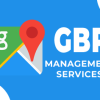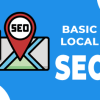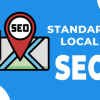The Importance of SEO for Embroidery Shops
SEO is a powerful tool for embroidery shops looking to increase their online presence and attract more customers. With a growing demand for personalized clothing and embroidered gifts, it’s crucial for embroidery shops to rank highly on search engines when people are looking for custom embroidery services. The right keywords can help these businesses stand out and attract more clients. In this article, we discuss how SEO plays a vital role in boosting the visibility of embroidery shops and how selecting the right keywords can drive traffic and sales.
Why Choosing the Right Keywords Matters for Embroidery Shops
Choosing the right keywords for your embroidery shop is essential to improving its online visibility. Keywords like “custom embroidery,” “embroidery services,” and “personalized gifts” should be central to your SEO strategy. These broad terms attract customers who are looking for general embroidery services. However, it’s equally important to target more specific terms, such as “embroidered hats” or “personalized embroidered shirts,” to appeal to people with particular needs.
Long-tail keywords are also beneficial for embroidery shops. For example, phrases like “affordable custom embroidery in [city name]” or “personalized embroidered gifts for weddings” help target niche markets and can improve your chances of ranking for highly specific searches. Additionally, location-based keywords like “embroidery shop in [city name]” or “local custom embroidery” are crucial for attracting customers in your area.
The Impact of Keywords on Your Embroidery Shop’s Online Growth
The impact of using the right keywords for your embroidery shop is significant. Optimizing your website with relevant keywords improves its visibility on search engines, making it easier for potential customers to find your services. With more traffic coming to your site, your chances of converting visitors into paying customers increase.
Using targeted keywords also helps build trust and credibility. When your embroidery shop ranks highly for relevant search terms, such as “best embroidery services in [city]” or “custom embroidery for events,” potential clients are more likely to view your shop as a reliable and trusted source for their custom embroidery needs. This trust leads to more business and stronger customer relationships.
Moreover, keyword optimization ensures that your website content aligns with the searcher’s intent. When customers find exactly what they are looking for, whether it’s custom shirts or embroidered promotional items, they are more likely to engage with your shop and make a purchase.
Crafting a Keyword Strategy for Embroidery Shops
To create an effective keyword strategy, embroidery shops should start by researching broad keywords like “custom embroidery” and “personalized gifts.” Then, focus on niche keywords, such as “embroidered business logos” or “custom embroidered patches.” Long-tail keywords, like “affordable custom embroidery in [city]” or “embroidered gifts for corporate events,” can help you attract clients who are looking for specific types of embroidery services.
Local SEO is critical for embroidery shops, as most clients will be searching for local services. Include keywords like “embroidery shop in [city name]” or “custom embroidery near [neighborhood]” to attract local customers. Regularly updating your website with new product offerings, customer testimonials, and blog content about embroidery trends provides more opportunities to optimize for relevant keywords and improve your rankings.
Growing Your Embroidery Shop with SEO and Keywords
SEO is an invaluable tool for embroidery shops to increase visibility, attract more clients, and boost sales. By selecting the right keywords, focusing on local SEO, and offering valuable content on your website, you can improve your search engine rankings and drive more traffic to your shop. With the right keyword strategy in place, your embroidery shop can become the go-to destination for custom embroidery services, leading to increased revenue and business growth.




